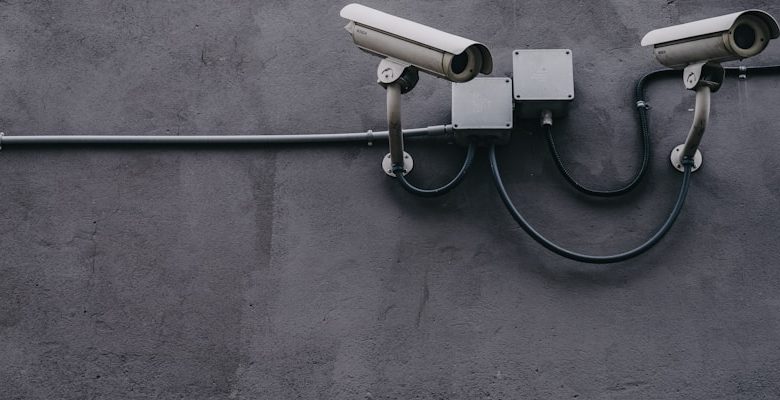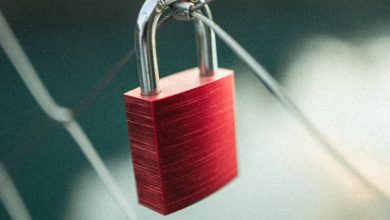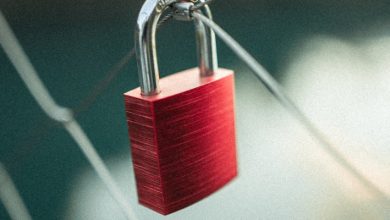The Role of Oracles in Blockchain Security

- Understanding the concept of oracles in blockchain technology
- The importance of oracles in ensuring accurate data feeds for smart contracts
- Challenges and limitations faced by oracles in maintaining security in blockchain networks
- Exploring the various types of oracles used in blockchain ecosystems
- How oracles help bridge the gap between the blockchain and real-world data sources
- Best practices for integrating oracles into blockchain projects for enhanced security
Understanding the concept of oracles in blockchain technology
Oracles play a crucial role in blockchain technology by acting as a bridge between the blockchain and the outside world. They are third-party services that provide smart contracts with external information necessary for their execution. Oracles are essential for enabling blockchain applications to interact with real-world data and events, making them more versatile and functional.
Oracles are responsible for fetching data from off-chain sources, such as APIs, and feeding it into the blockchain. This data can include information about market prices, weather conditions, sports scores, or any other relevant data needed for a smart contract to function properly. Without oracles, smart contracts would be limited to operating solely on the data stored within the blockchain, severely restricting their capabilities.
There are different types of oracles, including software oracles, hardware oracles, and consensus-based oracles. Software oracles rely on external data feeds, while hardware oracles use physical sensors to gather information. Consensus-based oracles aggregate data from multiple sources to ensure accuracy and reliability. Each type of oracle has its advantages and use cases, depending on the specific requirements of the smart contract.
One of the main challenges with oracles is ensuring the security and reliability of the data they provide. Since oracles are external entities, they are susceptible to manipulation or tampering, which can compromise the integrity of the smart contract. To address this issue, developers must carefully select reputable oracles and implement security measures to verify the authenticity of the data.
In conclusion, oracles are a critical component of blockchain technology that allows smart contracts to access real-world data and operate more efficiently. By understanding the concept of oracles and their role in blockchain security, developers can leverage them effectively to create robust and reliable decentralized applications.
The importance of oracles in ensuring accurate data feeds for smart contracts
Oracles play a crucial role in ensuring the accuracy of data feeds for smart contracts on the blockchain. These third-party services act as bridges between the blockchain and external sources of information, providing the necessary data inputs for the execution of smart contracts.
By connecting smart contracts to real-world data, oracles enable blockchain applications to interact with off-chain events and information. This functionality is essential for decentralized applications that require external data to trigger specific actions or decisions.
Without reliable oracles, smart contracts may be vulnerable to manipulation or inaccuracies due to incorrect data inputs. This can lead to serious consequences, such as financial losses or contract failures. Therefore, the use of trustworthy oracles is critical to the overall security and reliability of blockchain applications.
Oracles employ various mechanisms to ensure the accuracy of data feeds, such as data validation, consensus algorithms, and reputation systems. These mechanisms help verify the authenticity and integrity of the information provided, reducing the risk of data manipulation or tampering.
In conclusion, oracles play a vital role in maintaining the integrity of data feeds for smart contracts on the blockchain. By facilitating the secure and reliable transmission of external data, oracles help ensure the proper functioning of decentralized applications and enhance overall blockchain security.
Challenges and limitations faced by oracles in maintaining security in blockchain networks
Oracles play a crucial role in ensuring the security of blockchain networks by providing external data to smart contracts. However, they face several challenges and limitations in maintaining this security. One of the main challenges is the vulnerability to data manipulation. Oracles rely on external sources for information, which can be tampered with by malicious actors, leading to inaccurate data being fed into the blockchain.
Another limitation is the issue of trust. Oracles act as intermediaries between the real world and the blockchain, requiring users to trust that the data they provide is accurate and reliable. This trust can be difficult to establish and maintain, especially in decentralized networks where multiple oracles may be involved in the process.
Additionally, the centralized nature of some oracles poses a risk to the security of blockchain networks. Centralized oracles are single points of failure, making them vulnerable to attacks that could compromise the integrity of the entire network. To address this, decentralized oracles are being developed to distribute the data verification process among multiple sources.
Furthermore, scalability is a significant challenge for oracles in maintaining security in blockchain networks. As the volume of transactions on the blockchain grows, oracles must be able to handle increasing amounts of data quickly and efficiently. Scalability issues can lead to delays in data retrieval and processing, potentially impacting the security and performance of the network.
In conclusion, while oracles play a crucial role in ensuring the security of blockchain networks, they face challenges such as data manipulation, trust issues, centralization, and scalability limitations. Addressing these challenges is essential to enhance the overall security and reliability of blockchain networks in the future.
Exploring the various types of oracles used in blockchain ecosystems
Oracles play a crucial role in blockchain ecosystems by providing external data to smart contracts. There are various types of oracles used in these systems to ensure the accuracy and reliability of the information being fed into the blockchain. Let’s explore some of the most common types of oracles:
- Hardware Oracles: These oracles are physical devices that connect the blockchain to the physical world. They can provide data such as temperature, humidity, or location information.
- Software Oracles: These oracles are software programs that collect and verify data from online sources. They can retrieve information from APIs, websites, or databases.
- Inbound Oracles: These oracles bring external data into the blockchain. They are responsible for feeding information to smart contracts for decision-making.
- Outbound Oracles: These oracles send data from the blockchain to external systems. They can execute transactions or trigger events based on the conditions set in the smart contracts.
- Consensus Oracles: These oracles use a consensus mechanism to validate the accuracy of the data before it is accepted on the blockchain. They help prevent fraudulent or inaccurate information from being incorporated into the system.
By utilizing a combination of these different types of oracles, blockchain ecosystems can ensure the security and reliability of their smart contracts. Each type serves a specific purpose in verifying and validating external data, ultimately contributing to the overall integrity of the blockchain network.
How oracles help bridge the gap between the blockchain and real-world data sources
Oracles play a crucial role in bridging the gap between the blockchain and real-world data sources. They act as intermediaries that fetch external data and feed it into smart contracts on the blockchain. This allows blockchain applications to access and utilize data from the outside world, enabling a wide range of use cases beyond the scope of the blockchain itself.
By connecting blockchain networks with external sources of information such as APIs, IoT devices, and other data feeds, oracles enable smart contracts to interact with real-world events and make decisions based on up-to-date information. This functionality is essential for decentralized applications (dApps) that require external data to trigger actions or validate conditions.
Oracles help enhance the security and reliability of blockchain networks by providing a mechanism for verifying and validating external data before it is used in smart contracts. This helps prevent malicious actors from manipulating the data source or feeding inaccurate information into the blockchain. By leveraging multiple oracles and consensus mechanisms, blockchain systems can enhance the integrity and accuracy of external data feeds.
In addition to enhancing security, oracles also enable new possibilities for blockchain applications in various industries such as finance, supply chain, healthcare, and more. For example, oracles can be used to trigger insurance payouts based on real-time weather data, track the provenance of goods along the supply chain, or provide real-time monitoring of patient health data for medical research.
Overall, oracles play a critical role in expanding the capabilities of blockchain technology by connecting it to real-world data sources. Their ability to fetch, verify, and transmit external data into smart contracts opens up a wide range of possibilities for decentralized applications, making blockchain more versatile, secure, and reliable for a variety of use cases.
Best practices for integrating oracles into blockchain projects for enhanced security
Integrating oracles into blockchain projects is crucial for enhancing security measures. By following best practices, developers can ensure that the data inputs from oracles are reliable and trustworthy, thus safeguarding the integrity of the blockchain network.
- Choose reputable oracle providers with a proven track record in the industry. Look for providers that have a strong reputation for delivering accurate and timely data feeds.
- Implement multiple oracles to create redundancy and mitigate the risk of a single point of failure. By diversifying your sources of data, you can reduce the likelihood of manipulation or errors.
- Utilize cryptographic techniques to secure the data transmission between the oracle and the blockchain. Encryption and digital signatures can help prevent unauthorized access or tampering of the data.
- Regularly audit the oracle system to identify any vulnerabilities or weaknesses. Conducting security assessments can help you proactively address any potential risks before they are exploited by malicious actors.
- Establish clear protocols for handling disputes or discrepancies in the data provided by oracles. Having a transparent process in place can help resolve issues quickly and maintain the trust of all stakeholders involved.
By following these best practices, blockchain projects can leverage oracles effectively to enhance security measures and ensure the reliability of external data inputs. With a robust oracle integration strategy in place, developers can strengthen the overall security posture of their blockchain networks and build trust among users and stakeholders.



